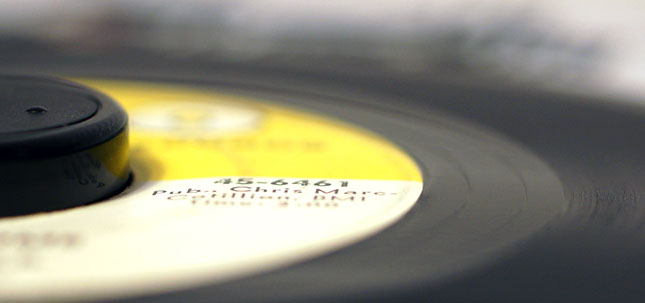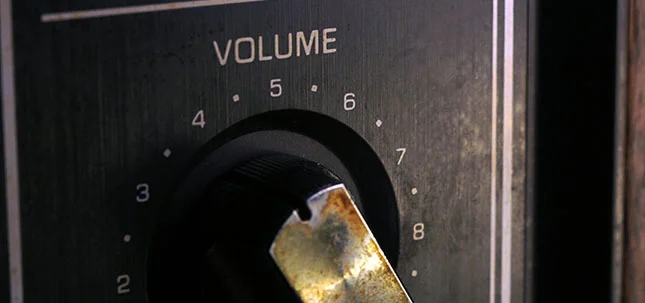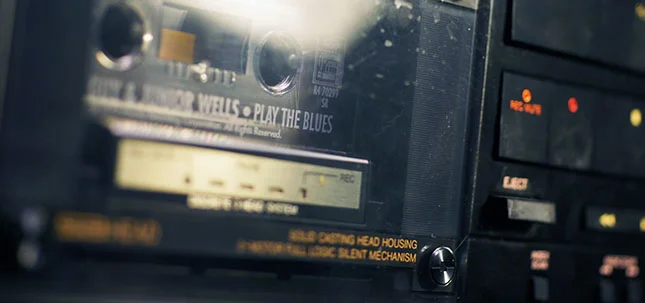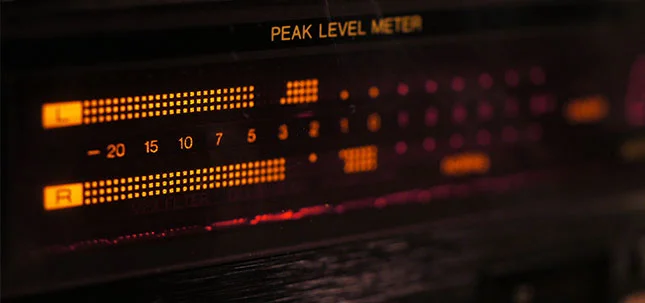WRITERS ROUND:
Tom Waits - "Downtown Train"
Tom Waits would never be described as a particularly commercial artist. Depending on if you ask someone like my mother about albums like Mule Variations or Bone Machine, he could also be described as incoherent, cacophonous, or The-Reason-Why-We-Ask-You-To-Keep-Your-Door-Closed-Upstairs.
But before Waits had the gravel / broken glass / whiskey throat transplant that music writers have carbon dated to sometime before 1983, he wrote piano-based lounge music that even Lorise Reed could stomach. Waits released his debut record, Closing Time, along with its lead single “Ol’ 55” in the spring of 1973 and snagged himself some of that sweet, sweet 70s stadium rock cash when The Eagles covered the song a year later. Waits described their cover as “antiseptic.”
Somewhere between the gentle crooning of his early work and the moment he started writing songs about how God has turned his back on the human race, Tom Waits released Rain Dogs in 1985. The album’s singles failed to make a sizable impact on the charts, but one of them, second single “Downtown Train,” would find new life through a variety of Lorise Reed-approved avenues.
That’s Jake LaMotta of Raging Bull fame in the promotional video, by the way. If there’s any man who can look surlier and more beaten-down than Tom Waits, it’s LaMotta.
Four years later, Rod Stewart and Bob Seger found themselves in a race against the clock when each of them decided to record “Downtown Train” in 1989. In November of that year, Rod Stewart beat Seger to the punch when he released the career retrospective Storyteller - The Complete Anthology: 1964-1990 and included “Downtown Train” as its final track. This ensured that mothers everywhere had something to unwrap under the Christmas tree before the 90s arrived while Tom Waits scored even more of that lucrative and previously-unattainable Adult Contemporary money.
If Tom Waits thought The Eagles could make one of his songs sound antiseptic, he couldn’t have imagined what Bob Seger would do to one. Seger released his version of “Downtown Train” alongside his own career retrospective album in 2011-- and it sounds exactly as you’d imagine Bob Seger covering Tom Waits would sound. I’m not sure how deep the Bob Seger vaults stretch, but I would take a stab that almost all of the precious gems locked away by Bobby sound just like this.
Oddly enough, one of the first cover versions of “Downtown Train” was recorded by Patty Smyth in 1987. No, not the Japanese supermarket bootleg of Patti Smith. This one is by the same woman who sang “The Warrior” with 80s rock band Scandal. This is probably my favorite of these covers because the song fits so well into the New Romantic yearning of the late 80s. Speaking of carbon dating, Smyth decided to add a short saxophone solo and synth arpeggiation because, well, duh, it’s 1987.
Jumping to the opposite side of the 1980s spectrum, singer-songwriter Mary Chapin Carpenter cut “Downtown Train” the same year as Patty Smyth. Carpenter’s recording outmatches both Stewart and Seger when it comes to a straight-forward Americana version. Even though she disagreed with the “country” genre pigeonholing that Columbia Records thrust upon her early in her career, she would later go on to win five Grammys, two Country Music Association awards for Female Vocalist of the Year, and two Academy Country Music awards in the same category over the course of a five year period.
In the early 1990s, British sophisti-pop duo Everything but the Girl released an acoustic cover of “Downtown Train” that was later used in the final episode of How I Met Your Mother and matches the breakneck intensity of every Savage Garden ballad. The song’s inclusion in such a high profile series finale clearly paved the way for even more cover versions.
Most recently, vocalist Dustin Christinsen performed “Downtown Train” in a blind audition for The Voice. If Wait’s voice is gravel and whiskey, Christensen’s is the rock that gets stuck in your shoe. After being passed around between teams led by Blake Shelton and Adam Levine, Christensen was eliminated from competition late last year.
The trajectory of a song like “Downtown Train” can be looked at as a case study within popular music. Surely, the song’s lifespan contributed, in some way, to Tom Waits’ ability to experiment and thrive as a songwriter in the years following 1983’s Swordfishtrombones-- just as “Ol’ 55” helped launch his career years before. And while he may be seen as a larger-than-life figure among music nerds or record collectors, Waits is still a liner note name for music fans like Lorise Reed. Although, I can assure you that she’s never once asked me to turn down Rod Stewart.
Header Photo Credit: ©Orion/Courtesy Everett Collection










